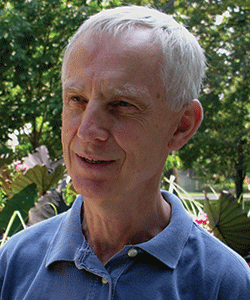Douglas L. Medin
 Northwestern University
Northwestern University
William James Fellow Award
Best known for his research on concepts and categorization, Doug Medin studies how our ideas of the natural world develop, examining biological thought from a cross-cultural perspective He also investigates the role of culture and moral values in the decision-making process.
Through a collaboration with researchers on the Menominee Reservation in Wisconsin and the American Indian Center in Chicago, Medin has explored the scientific reasoning orientations of children across cultures, as well as across urban versus rural populations. This research aims to develop workable interventions to improve students’ understanding of science in the classroom. Medin and his colleagues pursue the idea that “framework theories” relevant in school and in Native American students’ home lives often are clashing. He says student performance would improve if teachers presented in a manner similar to the way students learn and practice community values.
Medin has been a model and a strong advocate for interdisciplinary research. Many years ago, he and University of Michigan cognitive anthropologist Scott Atran decided to combine their research interests in human behavior and the environment, and today are co-directors of Northwestern’s Cognitive Studies of the Environment program. In one of their many ongoing collaborations, Medin, Atran, and their colleagues have tackled what’s known as commons behavior. This line of inquiry asks why certain populations don’t destroy a shared environment to fulfill selfish needs. By working with ecologists, biologists, and linguists, in addition to psychologists and anthropologists, Medin and Atran have studied Maya populations and their land and found that even without these perceived cultural necessities this group collectively uses the commons without draining its resources. Part of the reason for this behavior, the researchers have found over the years, is rich understanding of forest ecology and seeing the forest spirits as guardians of the forest.
Medin’s work has helped move psychological science beyond simplistic laboratory models on how the mind operates to a broader focus on how our expertise and cultural background influence our mental view of the world.





APS regularly opens certain online articles for discussion on our website. Effective February 2021, you must be a logged-in APS member to post comments. By posting a comment, you agree to our Community Guidelines and the display of your profile information, including your name and affiliation. Any opinions, findings, conclusions, or recommendations present in article comments are those of the writers and do not necessarily reflect the views of APS or the article’s author. For more information, please see our Community Guidelines.
Please login with your APS account to comment.